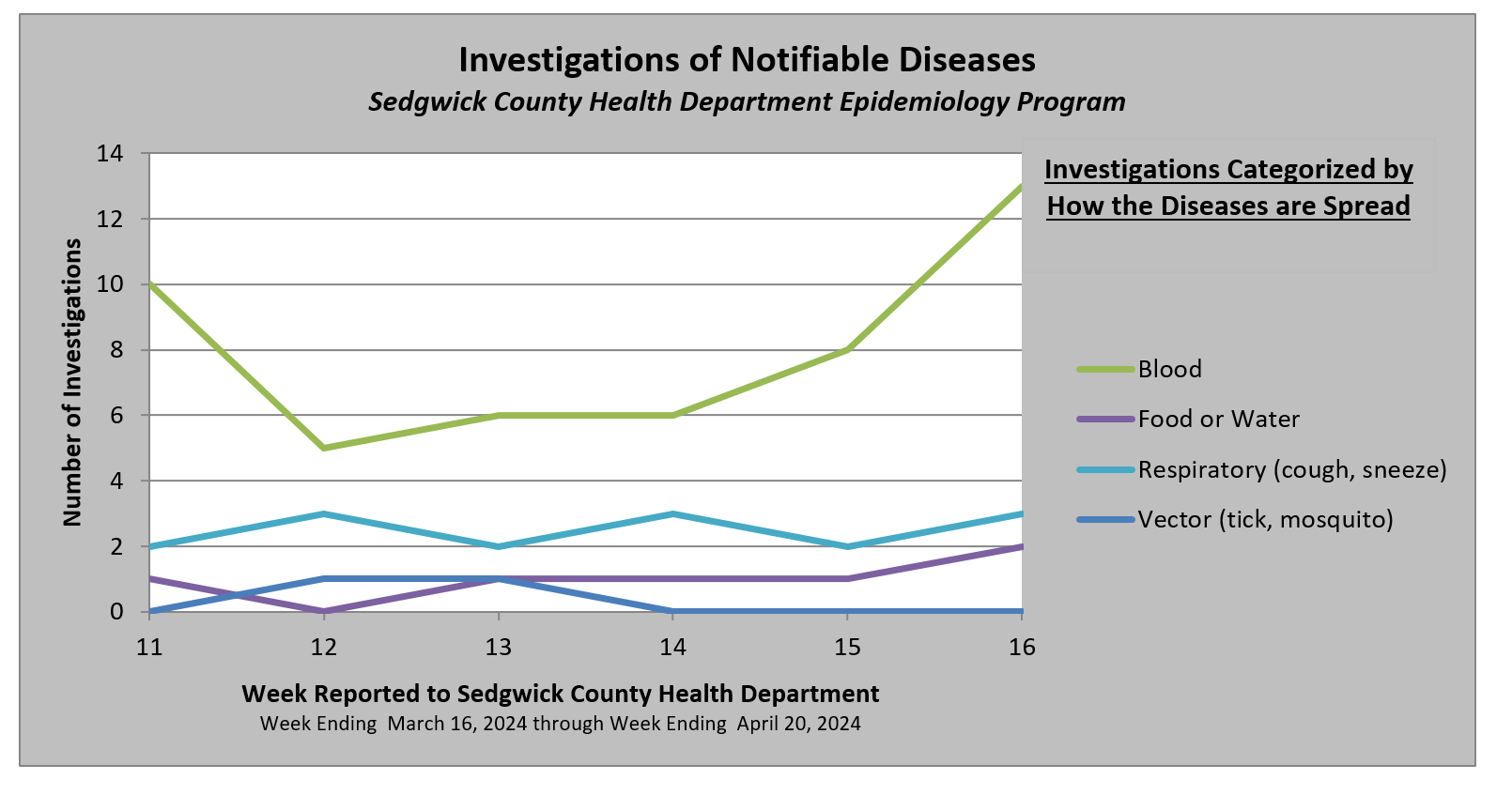Community Health News
What's Happening Now?
CDC Issues Alert on Increasing Global and U.S. Measles Risk
The number of U.S. measles cases and outbreaks reported to the Centers for Disease Control and Prevention (CDC) during the first two and a half months of 2024 already exceeds the number of cases and outbreaks reported in all of 2023. To reduce the risk of further cases and outbreaks, the CDC advises that all U.S. residents traveling internationally should be current on their measles, mumps and rubella (MMR) vaccinations. Healthcare providers are advised to ensure that children are current on routine immunizations, including MMR. | Read the CDC advisory | Read SCHD's Measles Fact Sheet
Recall of Several Brands of Cinnamon Applesauce Pouches With High Amounts of Lead
The FDA has issued a public health alert related to lead exposure in certain brands of cinnamon-containing apple puree and applesauce pouches manufactured November 22nd and later. The brands are WanaBana apple cinnamon fruit pouches, Schnucks-brand cinnamon-flavored applesauce pouches, variety packs, and Weis-brand cinnamon applesauce pouches. Do not eat these products and throw them away if you have them at home. As of November 22nd, there have been 52 reports of elevated blood lead that are potentially linked to the recalled products, with potential cases ranging from less than 1 to 4 years of age.
If you or your child ate these products, you should contact your healthcare provider about blood lead testing. If your child had an elevated lead level after eating this product, contact the Sedgwick County Health Department at 316-660-7300.
Although most children do not show obvious symptoms of lead poisoning, short-term symptoms can include headache, abdominal pain and vomiting. Long-term exposure can cause irreversible hearing, growth, and development, behavior problems and poor performance in school.
Additional Resources:
https://www.fda.gov/food/outbreaks-foodborne-illness/investigation-elevated-lead-levels-applesauce-pouches-november-2023
https://www.cdc.gov/nceh/lead/default.htm
Update on Bird Flu Outbreak in U.S. Dairy Cattle
Since late March, dairy cattle in eight states including Kansas have tested positive for H5N1 avian influenza (bird flu) virus. There has been one human case associated with the outbreak. A Texas dairy worker tested positive for bird flu after direct contact with infected cattle.
The worker experienced eye redness (conjunctivitis) as their only symptom and was treated with an existing antiviral drug. The Centers for Disease Control and Prevention’s (CDC) preliminary analysis of H5N1 has not found changes that would make the virus resistant to current flu antiviral medications approved by the U.S. Food and Drug Administration (FDA), so these are believed to be effective.
Bird flu occurs naturally in wild birds, which can pass it to domesticated birds (e.g., chickens) and mammals, including humans. Transmission from mammals to other mammals can occur, but it is believed to be rare. The spread of bird flu viruses from one infected person to a close contact is very rare, and when it has happened, it has only spread to a few people.
What is being done?
While the current public health risk is low, CDC is watching the situation carefully. It is working with states to monitor people with animal exposures. The CDC is also using its surveillance systems to monitor H5N1 activity. The systems have not detected any unusual trends in flu, flu-like illnesses or conjunctivitis.
The FDA is monitoring the nation’s milk supply. An FDA study released April 25 found that roughly 1 in 5 samples contained fragments of H5N1 bird flu virus. FDA officials say there is no evidence that these viral fragments pose a danger to consumers or that live virus is present in the milk found on grocery store shelves. Based on available information, pasteurization inactivates the virus, but it does not eliminate inactive viral fragments. The FDA is conducting ongoing testing to confirm these findings.
To contain the outbreak in cattle, the U.S. Department of Agriculture will require testing for all lactating dairy cows moving across state lines beginning April 29.
Notifiable Disease Investigations

Read about the epidemiology (disease investigation) program at the Sedgwick County Health Department